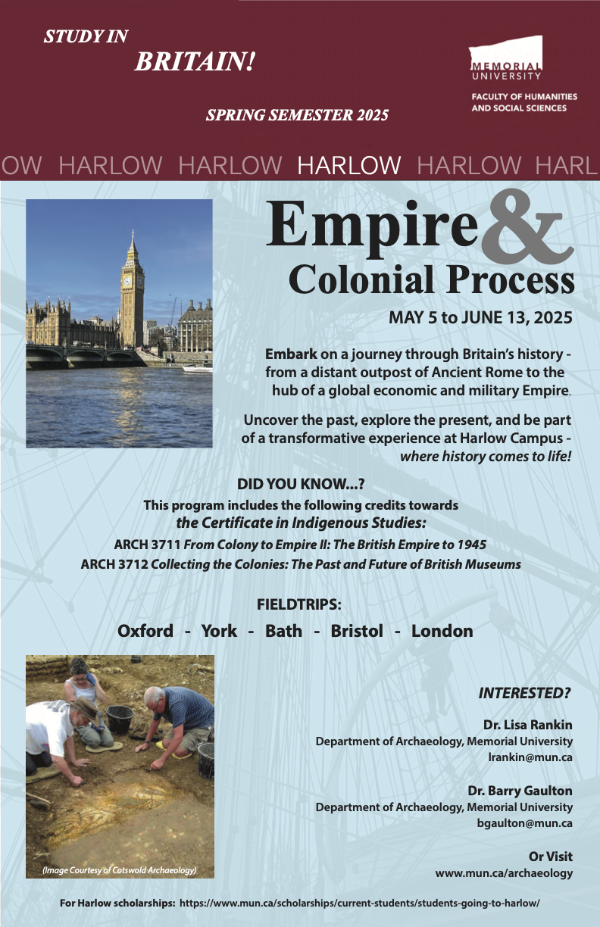Certificate in Indigenous Studies
Considering the growing interest in reconciliation across the country, the area of Indigenous Studies is an increasingly important field in Canada.
Our certificate program appeals to a wide variety of learners, including current and prospective university students and those interested in the public, not-for-profit and non-governmental sectors. It is designed for those who are interested in learning about the history, cultures, languages, beliefs and experiences of Indigenous peoples.
The objective of the program is to provide foundational knowledge for understanding historical and contemporary experiences of Indigenous peoples – from the origins of First peoples and their complex histories over the proceeding millennia, to present movements and the growing desire for reconciliation between governments and Indigenous societies.
Courses will cover subject areas such as archaeology, anthropology, history, literature and political science.
Regulations for the Certificate in Indigenous Studies
As part of the Certificate in Indigenous Studies students must successfully complete a 3-credit-hour foundation course at the 1000-level. It is anticipated that the foundation course will be taken at the beginning of the program. As part of their course selections, students are encouraged to complete courses that emphasize the origins and histories of Indigenous peoples as well as courses that emphasize contemporary issues of Indigenous peoples.
The Certificate in Indigenous Studies consists of 21 credit hours as prescribed below:
- Archaeology 1005 or History 1005;
- a minimum of 6 credit hours at the 2000 level from Table 1 Courses for the Certificate in Indigenous Studies;
- a minimum of 6 credit hours at the 3000 level or 4000 level from Table 1 Courses for the Certificate in Indigenous Studies;
- an additional 6 credit hours at any level from Table 1 Courses for the Certificate in Indigenous Studies; and
- of the required 21 credit hours, students must complete courses from at least three disciplines.
Table 1 Courses for the Certificate in Indigenous Studies
| 1000-level and 2000-level Courses | 3000-level and 4000-level Courses |
| Anthropology 2414 Archaeology 1005 or History 1005 Archaeology 2481, 2482 English 2160 History 2800 Linguistics 2022, 2025, 2026, 2060 |
Anthropology 3070, 3240 Archaeology 3290, 3291, 3510, 3588 Archaeology/History 3520, 3525 Gender Studies 3015 History 3765, 4252 Law and Society 3830, 3014 Linguistics 3951 Political Science 3830 Sociology 4205 |
Not all courses are offered every semester. Students are strongly advised to consult with the Program Coordinator for assistance with course planning, and to generally follow Table 2 Suggested Course Sequencing for the Certificate in Indigenous Studies. Students who are only pursuing the Certificate program (i.e. not pursuing a degree program) are encouraged to consult with the Program Coordinator and/or course instructor when considering a 4000-level course.
Other Humanities and Social Sciences courses whose Calendar entries clearly establish an emphasis on Indigenous Studies, including courses delivered exclusively at Grenfell Campus or the Labrador Institute, may be eligible. Students should speak with the Program Coordinator for information.
| First 3 credit hours: Archaeology 1005 or History 1005 |
| Next 18 credit hours: Successfully complete an additional six courses selected from Table 1 Courses for the Certificate in Indigenous Studies. (Certificate total is 7 courses) |
Program Coordinator
For more information students are invited to contact the Program Coordinator. Please see http://www.mun.ca/hss/about/contact/coordinators.php for current contact information.
Upcoming Courses in the Certificate
To look for course offerings in upcoming semesters please visit: http://www.mun.ca/hss/courses.php
Field School and Study Abroad Opportunities
Embark on a journey through Britain's history from a distant outpost of Ancient Rome to the hub of a global economic and military Empire.
Uncover the past, explore the present, and be part of a transformative experience at Harlow Campus - where history comes to life!
For more information on Empire & Colonial Process (May to June 2025), visit: https://www.mun.ca/archaeology/programs/field-school--study-abroad-opportunities/
